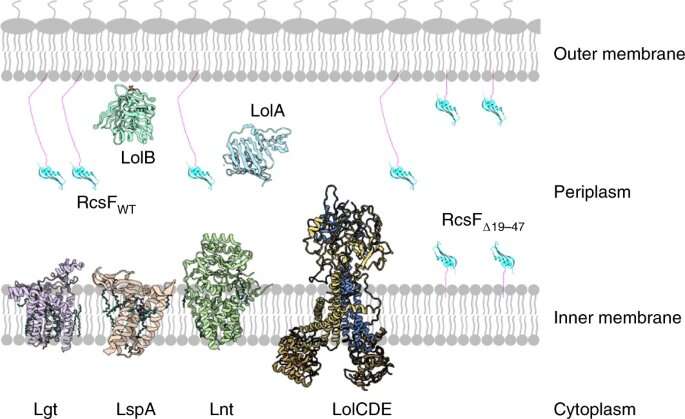The soft ‘spaghetti’ of proteins that’s essential for the resistance of bacteria

Bacteria are increasingly resistant, especially to antibiotics, which is a major global health problem. An example, related to the pandemic? Covid weakens hospitalized people so much that we are now witnessing an upsurge in bacterial infections (resistant bacteria engulf the breach caused by the virus and further weaken patients). Research in this area is therefore essential.
“To fight your enemy, you have to know his strengths and weaknesses, understand how this enemy is getting ready for the fray.” Understanding the functioning of bacteria is precisely the objective of the laboratory of Jean-François Collet, researcher at de Duve Institute of University of Louvain (UCLouvain). Decipher their mechanisms in order to thwart their resistance to antibiotics. With this in mind, Jean-François Collet’s team has just made a new discovery, published in the prestigious scientific journal Nature Chemical Biology.
Bacteria protect themselves from invaders (antibiotics) by 1 or 2 boundary walls (membranes). In addition, they are made up of proteins: each has its own structure that determines its function. In the outer protective wall, in particular lipoproteins are found, i.e. proteins attached to the wall via a lipid (fatty) anchor. These lipoproteins participate in the construction of the wall, in its maintenance and in its defense, thus allowing the bacteria to live and to conquer.
Jean-François Collet’s team, including the young researcher Jessica El Rayes, observed that between the active part of the lipoprotein and the lipid part, there is a sequence without structure, which resembles cooked spaghetti, all soft, able to adopt its shape as it desires. Until now, research has not focused on these unstructured sequences. However, they are present in many bacteria such as E-coli or Borrelia (Lyme disease). The UCLouvain team therefore decided to investigate this soft segment in order to determine its role in the life of bacteria.
The result? The researchers found that the bacterium was weakened when the “soft spaghetti” was transformed into spirelli or when it was shortened into angel’s hair. Clearly, the UCLouvain scientists have demonstrated the essential role of this disordered sequence: without the soft spaghetti, the lipoproteins no longer reach the surrounding wall and the bacterium is therefore weakened! This finding also shows that there are still many regions within proteins that we know nothing about.
The conclusion? This is an important further step in the search for new antibiotic treatments to fight bacterial infections.
Click… Resistant bacteria caught in the act
El Rayes et al, Disorder is a critical component of lipoprotein sorting in Gram-negative bacteria, Nat Chem Biol (2021). DOI: 10.1038/s41589-021-00845-z
Citation:
The soft ‘spaghetti’ of proteins that’s essential for the resistance of bacteria (2021, July 29)
retrieved 30 July 2021
from https://phys.org/news/2021-07-soft-spaghetti-proteins-essential-resistance.html
This document is subject to copyright. Apart from any fair dealing for the purpose of private study or research, no
part may be reproduced without the written permission. The content is provided for information purposes only.
For all the latest Science News Click Here
For the latest news and updates, follow us on Google News.

